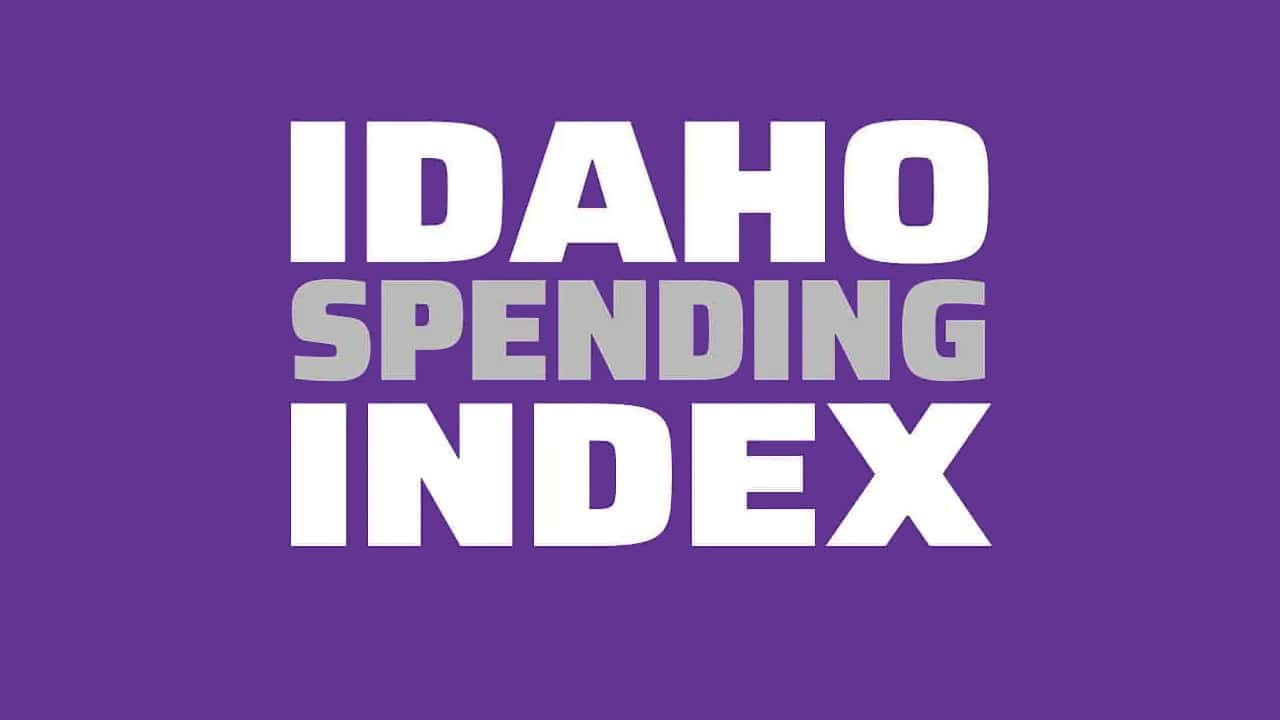


The Idaho Spending Index serves to provide a fiscally conservative perspective on state budgeting while providing an unbiased measurement of how Idaho lawmakers apply these values to their voting behavior on appropriations bills. Each bill is analyzed within the context of the metrics below. They receive one (+1) point for each metric that is satisfied by freedom-focused policymaking and lose one (-1) point for each instance in which the inverse is true. The sum of these points composes the score for the bill.
Rating: (-4)
Bill Description: House Bill 443 is an enhancement of $5,360,700 and 1.00 new full-time position for the Office of the State Board of Education for fiscal year 2026. This legislation appropriates a total of $61,454,800 and 85.25 full-time positions to the agency.
Does this budget incur any wasteful spending among discretionary funds, including new line items? Conversely, does this budget contain any provisions that serve to reduce spending where possible (i.e. base reductions, debt reconciliation, etc.)?
House Bill 443 contains an additional $5 million appropriation for public-private workforce capacity grants. These funds would be used to “build infrastructure capacity if it relates to workforce training and in-demand careers and incentivize institutions to partner with local community members to raise funds for the projects.” This is only the latest of the governor’s spending proposals for workforce development and career and technical education.
Generally, higher education institutions already partner with private entities for funding through donations and other private grants. The state budget need not entice these institutions to seek more private funds to support their goals.
Additionally, Idaho has no shortage of career and technical education spending as of late. Colleges already received funding for facility expansions, new staff, programs, and tuition subsidies to facilitate this goal. Even this year, there is another request for $10 million in the Division of Career and Technical Education’s budget. They receive all this without a true evaluation of how their spending has changed the workforce — beyond how many students were funded and slots became available. It is imprudent to add yet another $5 million to these institutions without a clear understanding of why they need these funds.
(-1)
Is the continuation or growth in ongoing spending, if any, inappropriate for the changes in circumstances, scope of the agency, or current economic environment? Conversely, is the continuation or growth in ongoing spending appropriate given any change in circumstances or economic pressures?
This legislation funds ongoing spending for the Office of the State Board of Education at over $55 million, growing from the base by 240% in the last three years. This rate is much more than what would be prescribed by inflationary pressures and growth. COVID funds did not play a significant role in this increase, as nearly all of those funds will fall out of this budget by the end of the FY2025 fiscal year.
Because of the accelerated growth in this budget the last three years, a truly fiscally responsible enhancement budget for FY2026 would reverse the growth with a negative appropriation — a reduction to the base budget.
(-1)
Does the budget grow government through the addition of new permanent FTPs or through funding unlegislated efforts to create new or expanded entitlement programs? Conversely, does this budget reduce the size of government staff and programs except where compelled by new legislation?
This legislation adds one FTP at a cost of $144,200 for a database engineer. This person would support IT and database operations throughout the agency. This additional position would expand the size of the office.
(-1)
Does this budget contain hidden fund transfers or supplemental expenditures that work to enact new policy or are not valid emergency expenditures? Conversely, are fund transfers only made to stabilization funds or are supplemental requests only made in the interest of resolving valid fiscal emergencies?
Analyst Note: House Bill 443 contains a supplemental appropriation of $20,000 for a privately funded credit-mobility grant. The purpose of this grant is to standardize how all eight of Idaho’s community colleges, four-year colleges, and universities recognize college credits. This appropriation provides spending authority for privately sourced dollars.
These grant funds would come from an organization called Ithaka S+R. Initially, there were concerns about that organization using the opportunity to further DEI. Ithaka is a leftist organization, like many in the education establishment. Though it is not explicit about advancing DEI through this program, the ideology underpins much of its work. Conservatives should be skeptical about helping state-supported institutions accept these funds.
In all, this supplemental request does not constitute a budget emergency, nor does it appear to be serving the traditional interests of a conservative state.
(-1)


